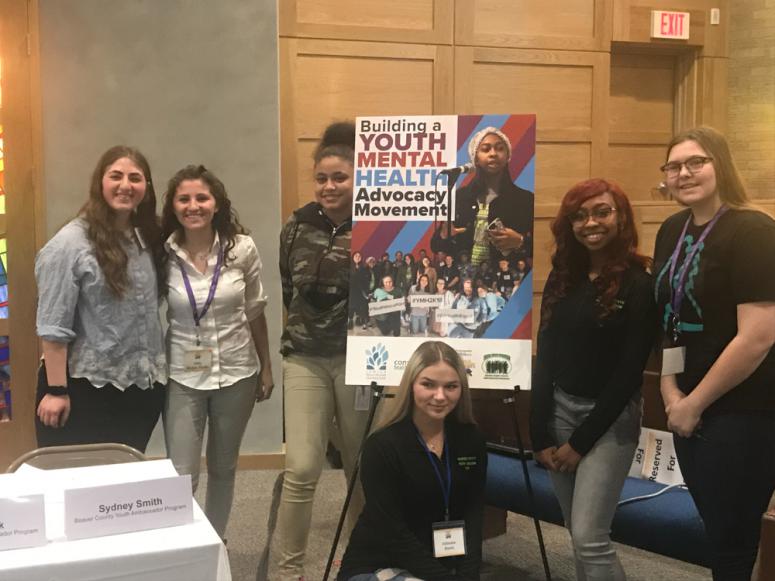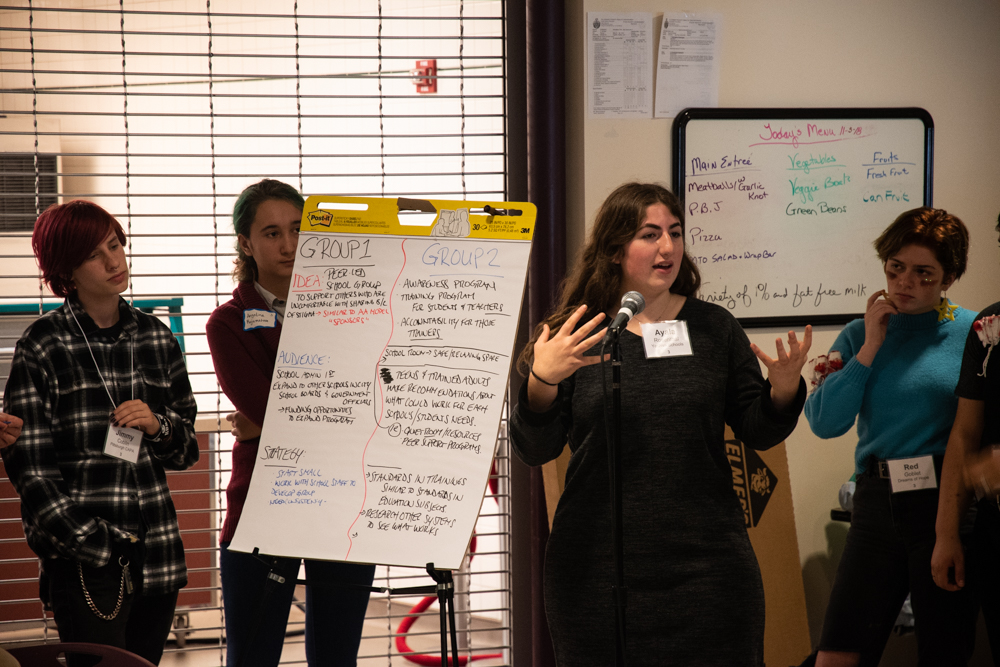
Through the Jewish Healthcare Foundation’s (JHF) Adolescent Behavioral Health Initiative, we’ve learned about the significant need for improved mental health supports and services for teens – in schools, in communities, in crisis, and in health care. There are incredible complexities in coordinating and accessing care across mental and physical health systems and the education system, not just in our home state of Pennsylvania but across the country. JHF partnered with AcademyHealth to create a federal policy playbook, organize a policy summit this summer, and mobilize a campaign to help build the safety net for better access and coordination of care. A key part of this work has been our commitment to engage a wide variety of stakeholders including researchers, legislators, providers and young people.
Today, we celebrate National Children’s Mental Health Awareness Week by kicking off a two-part blog series featuring the perspectives of four high school students and advocates for improving teen mental health. The second post will highlight the research community’s role in supporting advances in teen mental health.
What do you think are the main issues impacting teen mental health?
Emma: I think the main issue is the stigma surrounding mental health. Teenagers are constantly concerned with how their classmates perceive them and unfortunately, people look at mental illness as a negative trait. My school takes the steps to have resources, but they are not being used as frequently as they should because students are scared of being judged.
Ayala: I think the new era of technology and media really has an impact on teens. Authentic social relationships are harder to form and youth are constantly seeking approval from their peers, causing a lack of confidence.
Liam: One of the main issues that impacts mental health in teens is the lack of support people and teachers in schools that teens can go to, either to talk to or to support kids with mental health needs. It isn't really looked at as an issue.
What do you hope to accomplish in your advocacy efforts around teen mental health? What changes would you like to see?
Emma: I hope to advocate for a more accepting world in terms of mental health. There needs to be a change in the education system, making students aware of mental health at a younger age and continuing that education is very valuable.
Ayala: I want to make sure that the youth in my own orthodox community feel safe enough to speak up about their challenges and have the strength to seek help. I hope to see a change in the way my community, internationally, views mental illness and that a more embracing and supportive society in general becomes reality.
Abby: I would like to make teen mental health a topic that is common to talk about and doesn't make anyone uncomfortable.
Liam: I hope that we can make a change in schools that aren't taking notice of mental health. The changes I want to see are schools investing money into mental health programs and teacher/support positions so that kids and teens with mental health needs can go to them in school.

Through your advocacy efforts, you have encouraged safe, inclusive schools to improve mental health. What are the qualities of a safe, inclusive school?
Emma: Schools that have multiple counselors and professionals will surely aid in the process of caring for student's mental health. Ensure that the students are well educated and informed about mental health is a great step. Giving outlets and supporting brave students would help by giving them healthy environments to talk to others about their own mental health.
Ayala: To me, a safe and inclusive school would be one that is prepared to properly support any struggling teen without force or shame. Teachers should be open to discuss mental health and able to identify students in need. They should also be flexible with students dealing with mental health issues that interfere with their academics, just as they are with students dealing with a physical illness, physical disability or learning disability.
What data could researchers collect to help make the case around your concerns about teen mental health?
Emma: They could simply go into local schools and do a test of basic knowledge or surface level confessions. I am sure that many would be shocked by the alarming thoughts students have, the lack of help they are currently getting, and by the number of uneducated students.
Ayala: Mental health issues exist in ALL races, cultures and communities; this proves the desperate need for trained support in ALL schools and youth groups. Researchers need to be sure to include diverse populations when designing and evaluating programs for teen mental health.
How can researchers partner with youth to empower their voice in making changes to policy and practice?
Emma: They can simply talk to us! My classmates and I are very eager for change and to help, but it is difficult as a teenager to be taken seriously and have a large impact. There is some beauty in our age though, we have a much different perspective then adults and are excited to help.
Abby: Listen and value what we say, even though we are kids. Help us in things we cannot do ourselves.
Ayala: Talk to us! Give youth the opportunity to partake in the conversations that enforce policy and practice change regarding their own issues; they know them best! Part of empowering teens is validating their struggles, and proving that their voices will be listened to. It feels incredible to be in a position where adults are willing to listen and help make change for my generation. I am sure, without a doubt, that our world is becoming a more accepting and encouraging place, which will hopefully result in an empowered and supported young community.
As with other policy areas, new adolescent mental health policy cannot be built in a think tank without input from those it will affect most. We want to inspire community engagement and support youth advocacy to steer the system to work for those it’s supposed to serve. We look forward to the blog post response later this week from researchers working to create a federal policy playbook and organize a policy summit.